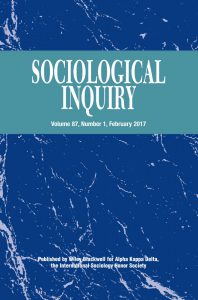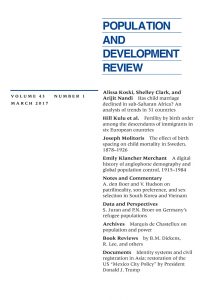Illness or Deviance: A Contested Space Between Criminal Justice and Medicine
 Foucault wrote that the nineteenth century ushered in a new way to inspect the body; recognizing that medical personnel had placed the patient under “perpetual examination” (1975). His interest, however, was on the discourse that produced, maintained, and extended the medical look or “gaze” (1975). The “clinic,” for Foucault, became an apparatus of examination; a site of knowledge production bound by rules and regulations. It became an authoritative institution where the individual became the object of scrutiny (Long, 1992).
Foucault wrote that the nineteenth century ushered in a new way to inspect the body; recognizing that medical personnel had placed the patient under “perpetual examination” (1975). His interest, however, was on the discourse that produced, maintained, and extended the medical look or “gaze” (1975). The “clinic,” for Foucault, became an apparatus of examination; a site of knowledge production bound by rules and regulations. It became an authoritative institution where the individual became the object of scrutiny (Long, 1992).
Following Foucault, there can be little doubt that the medical field has garnered power and authority in today’s society. Its utility and influence can be found in school immunizations, sports-related physicals, annual check-ups, seasonal vaccinations, yearly shots, and the like. However, as Conrad (2007) notes, this is only part of the picture. He, among others, proposes that the medical field has grown beyond shots and treatment; those in the medical profession now have the authority to define and/or redefine once thought non-medical issues as medical conditions.
Conrad (2007) defines this as the process of ‘medicalization,’ wherein non-medical issues are defined and treated medically as an illness or disorder. He highlights that the range of behaviours constructed as an illness warranting both the pervasive gaze of medical personnel and prescribed treatment has increased since the 1950s. Phelan (2005) and Courtwright (2010) add to this by discussing “geneticization” and, more specifically, how this process is re-shaping social problems. As the medical framework expands and gains authority over social problems, definitions change, different prescriptions are written, and alternative practices are adopted to abate social ills.
This process of ‘medicalization’ can be seen in the historical development of homosexuality, attention deficit disorder (ADD and ADHD), and even depression (Conrad, 2007). For the authors, the growing interest in medicine to explain behaviour was unavoidable given the rise of (1) improved medical instrumentation, (2) new laboratory techniques, (3) substantial monetary grants, and (4) improvements in research. Interestingly, behaviors once considered criminal or deviant are now being examined using medical lenses, defined employing medical definitions, and treated medicinally. Armed with growing support, medical authority, and political backing, the medical paradigm has become a major voice within the crime and deviance debate.
While medicalization has been interpreted as another form of control over the social and physical body, the gaining influence of the medical field has produced an intriguing dynamic. Conrad and Schneider (1980) discuss the importance of securing authority over defining behaviors and persons. Now, the criminal justice system and medical profession compete for this authority – contending that their own definition over actions is the more proper. Behaviors once thought criminal can now be medicalized, ushered into the realm of medicine, and removed from their criminal implication by being redefined as a medical pathology. As the medical field grows and the criminal justice system defends its legitimacy – a contested space is created; actions can now become medicalized or criminalized.
Read: Anderson, Swan, & Lane. (2010). Insititutional Fads and the Medicalization of Drug Addiction. Sociology Compass, 4(7): 476-494.





1 Response
[…] na thesocietypages.org objašnjava da je već Foucault pisao da je 19. stoljeće predstavilo novi način pregledavanja […]